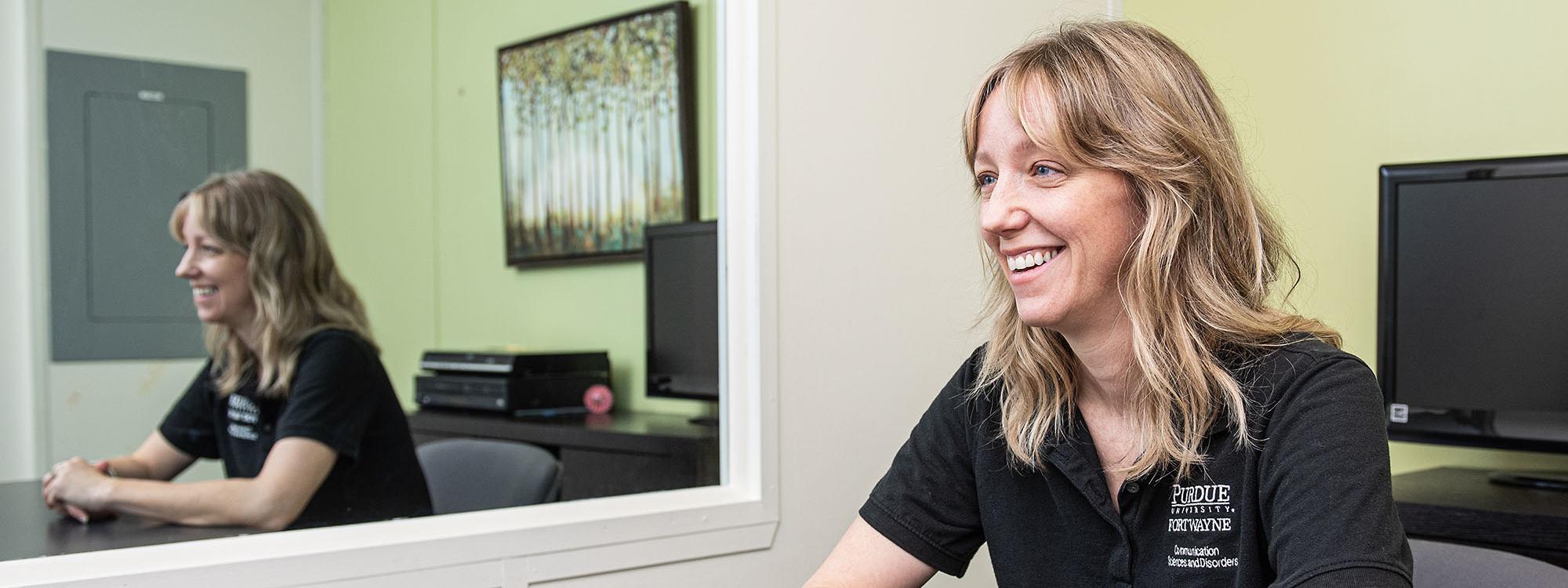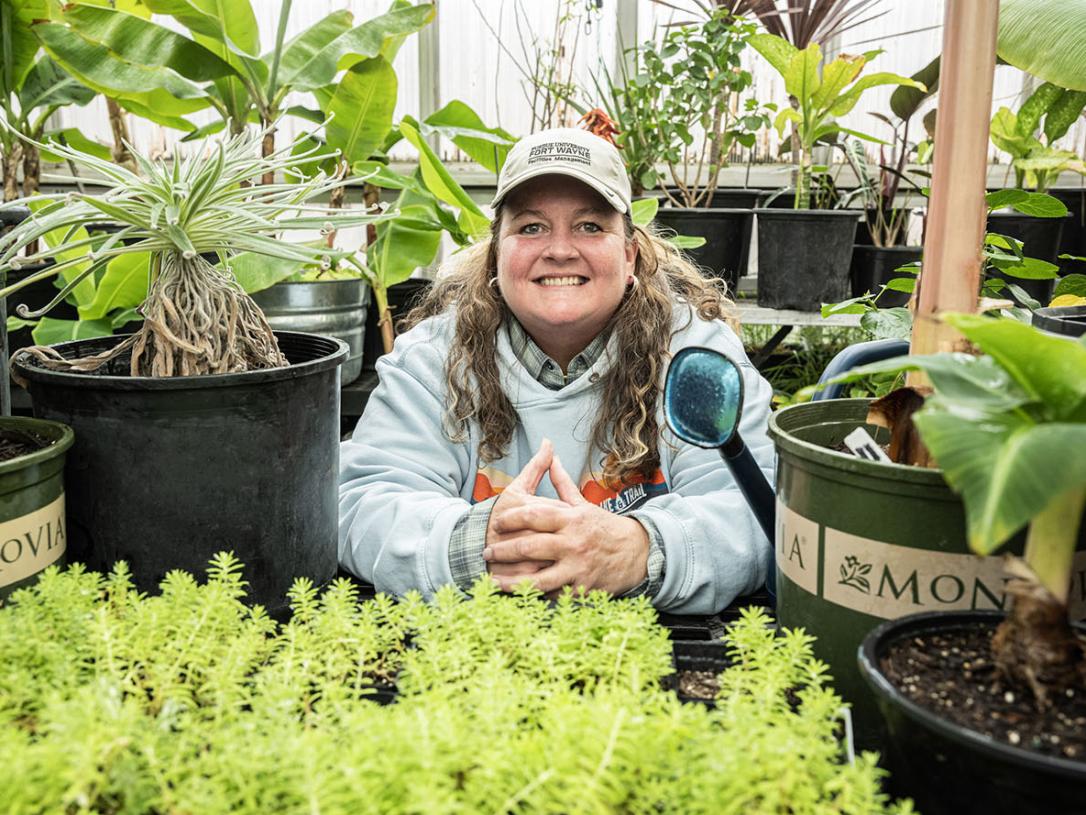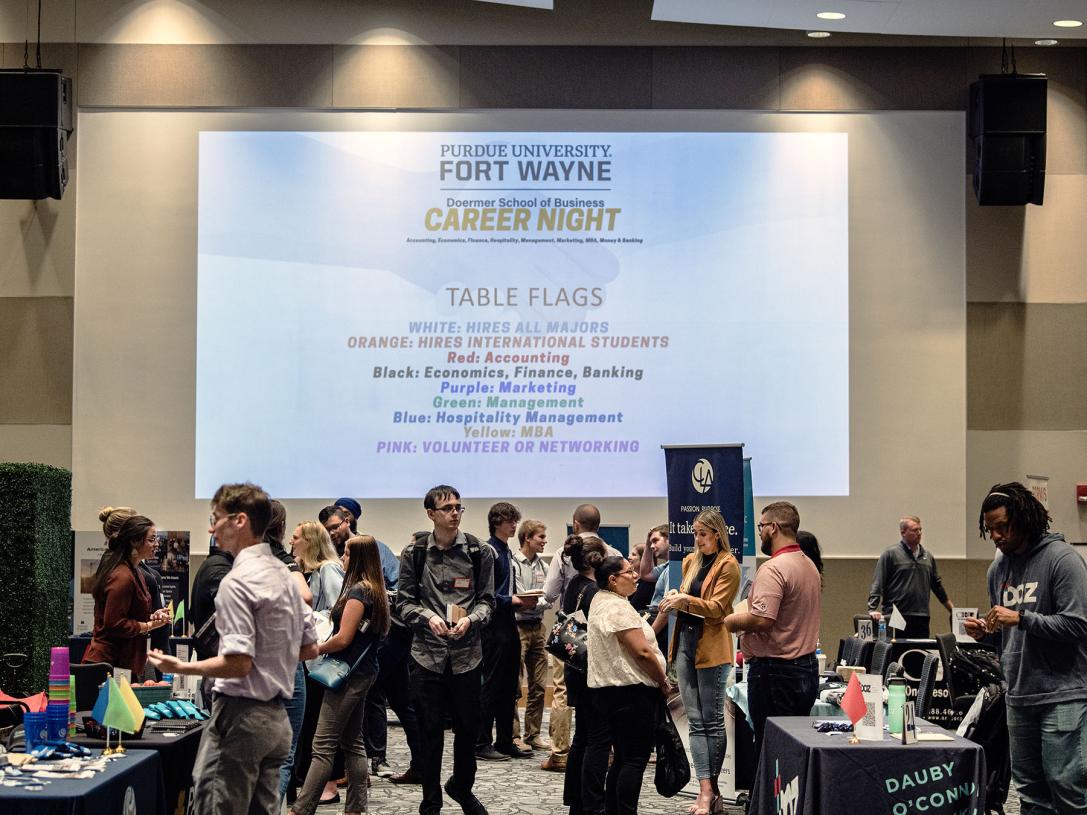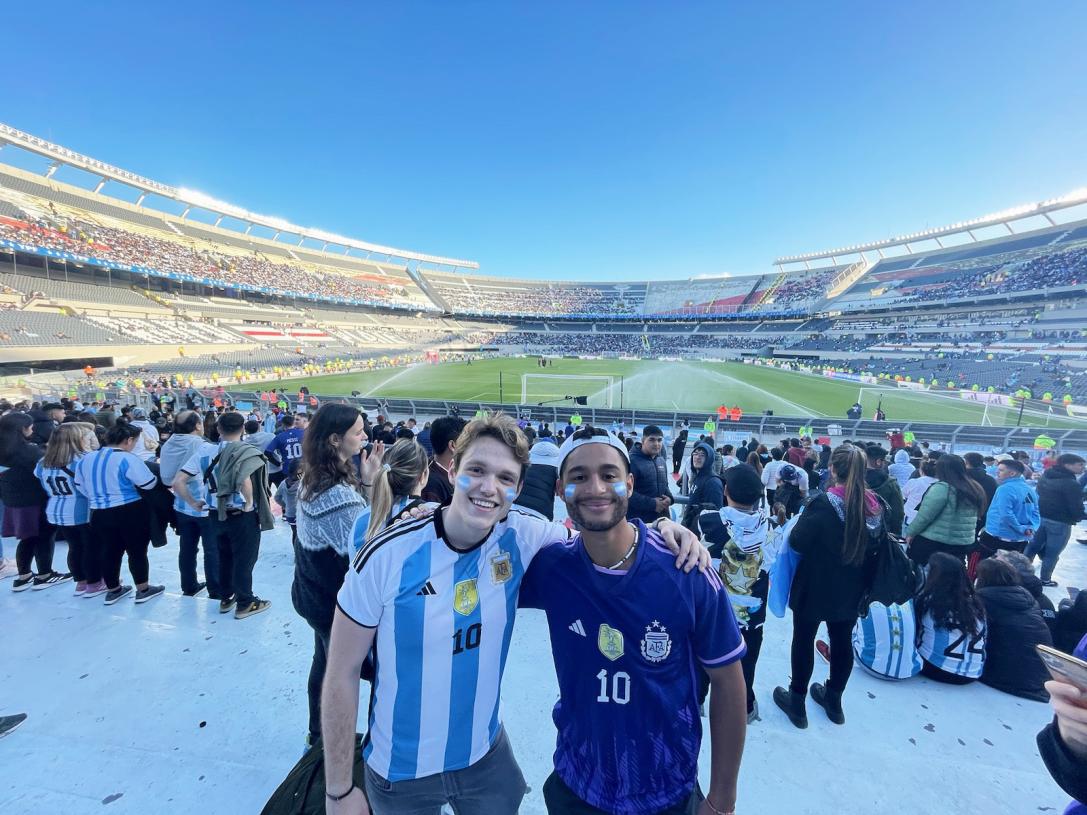
CSD Clinic serves dual role to help community and students
By Blake Sebring
February 4, 2025
Until actually stepping into a real-life client session, the skills of a student majoring in communication sciences and disorders are mostly untested and based on theory. Undergraduate classes provide a foundation, but when do students discover if their chosen field is correct—and if they can genuinely help people? When does theory become practice?
That’s the goal of the CSD Clinic at Purdue University Fort Wayne, which allows CSD students to work directly with clients. Located in the Classroom Clinic Building that sits between the Engineering, Technology, and Computer Science Building and Helmke Library, the clinic is open Monday through Thursday from 11 a.m. to 5 p.m.
Through their efforts, CSD students gain practical experience and confidence. During 2024, they worked with 105 clients over 1,697 hours of treatment or evaluation. Undergraduate students see one client, while graduate students work with up to four.
The clinic offers multiple services, all at no charge to clients of all ages. Individual or group sessions are available, and therapy goals are personalized to help clients maximize their potential in everyday life.
Community members can receive free assessment and treatment in areas such as language development, clear and fluent speech, healthy voice quality, reading and writing, social skills, communication after a stroke, cognitive abilities like attention and memory, and even swallowing safety. There’s also a children’s summer Language of Literacy camp.
College students seeking more information about their learning and literacy skills can also do testing that may help qualify them for classroom accommodations.
Many of the CSD students battle first-timer nerves.
“It’s a little bit daunting with the `Oh, what am I going to do?’” said Lauren Marsh. “This is the first time someone asks you to show your skills. You end up learning that after four years of study, maybe I did know a little bit.”
As Anna Pence, B.S. ’24, said, “You feel like you know nothing, and then you get thrown into this new opportunity and have to apply those skills.
“I think the clients know that we are students, but they don’t look at us and think they don’t have to take us seriously. I think there’s good mutual respect going on.”
After her first successful sessions, Pence said she experienced a runner’s high as if her dreams had been validated. She was on the right academic track and was good at helping people.
Each summer, a new cohort of 16 first-year graduate students step up to work in the clinic. There’s role-playing, more and deeper study, and continual coaching from faculty, along with doubts to deal with beforehand. Eventually, they must step into the small space to interact with a client.
“I didn’t feel I was competent to be doing it,” said Lindsey Hunt, B.S. ’24. “Actually being submerged into it with your client and building a rapport, having your supervisor there to share the experience with you is incredibly helpful.”
Faculty see every first-year class begin dealing with inexperience but always succeeding, finding more purpose, inspiration, and confirmation. Along with Onie Mensch, administrative assistant, the faculty supervisors include Leah Knoblauch, clinical assistant professor and clinical director; Jolene Lawton, clinical assistant professor; Jennifer Houston, clinical assistant professor; and Amy Goodman, clinical assistant professor. Besides teaching the students in class, they prepare them for each client session and provide feedback.
When heading into their second-year externships, the students are prepared and confident. The majority of the program’s graduates, now certified speech-language pathologists, remain in northeast Indiana to practice.
The training CSD students receive while studying at Purdue Fort Wayne continues to impact the community in a positive way long after they leave campus.
“We have clients who come to us five or 10 years after their injury, and insurance won’t cover them anymore, but we can still work with them and help them make small increments of progress,” Lawton said.
Students have a variety of experiences, working with children and adults, including those who are severely or mildly impaired.
Lawton is passionate about SPEAK OUT! Therapy, which specializes in helping Parkinson’s disease clients keep their voices strong.
The clinic also has agreements with local nonprofits such as GiGi’s Playhouse and Early Childhood Alliance to work with their members.
Knoblauch said most clients find out about the clinic through word of mouth or through offered community screenings.
Contact the Department of Communication Sciences and Disorders at [email protected] or call 260-481-6410 to learn more.




